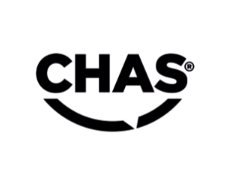phs Group has acquired Citron Hygiene UK - we’re here to support you. Read our customer FAQs and find our contact details here.
Soap is something that pre-dates any of us, a part of our everyday lives that helps us stay clean and maintain basic hygiene.
As one of mankind’s greatest inventions, soap has had more of an impact than you might realise. Soap helps prevent the spread of bacteria and diseases, helping people live longer and making the world a cleaner place to be.
The history of soap is a fascinating one, dating back thousands and thousands of years.
Celebrate this wonderful invention with our brief history of soap.
2800 BC – Where it all began
Some inventions are easier to pinpoint than others, but when they date back as far as 2800 BC, their origin becomes a little unclear. According to The Cleaning Institute, one of the earliest known references to soap dates back to the ancient Babylonians, with recent discoveries finding containers filled with a substance and inscribed with ‘fats boiled with ashes,’ which is how ancient soap was made.
Meanwhile, in Ancient Egypt, recent discoveries show that bathing was a common practice. The Ebers papyrus, dated around 1500 BC, shows references to bathing using products containing animal fats, vegetable oils and alkaline salts to use as a way to treat skin diseases and bathing. It’s safe to say that the soaps of the ancient world didn’t feature the wonderful fragrances we know and love today!
What about the word ‘soap’?
The legend of the word ‘soap’ is even more mysterious. The story goes that there was a mountain near Rome, dubbed ‘Mount Sapo,’ and when rain washed down the mountain, it would mix with animal fats and ashes to create a substance that helped with cleansing. Whether there is any truth in this, we can’t be sure, as nobody knows the location of Mount Sapo.
7th Century Europe – The capital of soapmaking
By the 7th Century, soapmaking had become a popular art form in Europe, particularly in France, Italy and Spain. With olive oil being especially prevalent in these countries, soapmaking was simpler and yielded excellent results.
In Britain, soapmaking became more popular in the 12th century, although it tended to be done in the home. Around the time of the Middle Ages and the infamous Black Death, hygiene standards were particularly poor.
17th Century – The resurgence of bathing
As the importance of bathing and hygiene became more apparent, so did the popularity of soap. At the time, soap was costly to produce, meaning it was only accessible to the wealthier classes.
In the 17th Century, a French chemist named Nicholas Leblanc patented a process that involved extracting soda ash from salt, which could then be used to create soap. Soap production soon expanded into countries like the United States, boosted by the Industrial Revolution which allowed large-scale manufacturing to take place in factories.
World War One – Shortages lead to innovation
The process of soap making continued in the same way until supply shortages during World War One led to different production techniques. Synthetic chemicals with similar properties to animal fats were used, creating ‘detergents’ that are commonly used in cleaning products today. Detergents are used in a variety of cleaning products, although we still tend to use the name soap when talking about hand and body cleansers.
Soap has evolved considerably since those early days, with liquid soap being the common choice for most households and businesses today. Soaps are fragranced and provide additional germ-fighting properties, as well as hydration.
Some of the most popular soap fragrances in the world include vanilla, lavender and citrus scents. Many people even make homemade soap to try custom fragrances, using many ancient techniques to make natural hand soap.
The importance of soap today
Soap continues to be important, helping us prevent diseases and make everything we do more hygienic. As the COVID-19 pandemic showed, hand washing is essential for reducing the spread of diseases, with hand sanitising still important even as the pandemic begins to ease.
Washroom hygiene has never been more important. Providing pleasant, clean and fully stocked washroom facilities helps maintain hygiene standards across your organisation, but also makes a good impression. Having the right facilities shows you take health seriously, putting your employees and customers first.
There are many things you can do to provide clean and effective washroom facilities. phs supply businesses across the country with washroom hygiene services that include everything from soap dispensers to hand dryers. We can advise you on everything you need to maintain a clean washroom and take care of essential repairs and supply maintenance on your behalf.
Keeping hands clean across your business with phs
At phs, we provide complete washroom solutions, putting everything in place so that you can keep your business clean. Contact us to talk about washroom hygiene and how we can make your workplace a cleaner place to be.

































